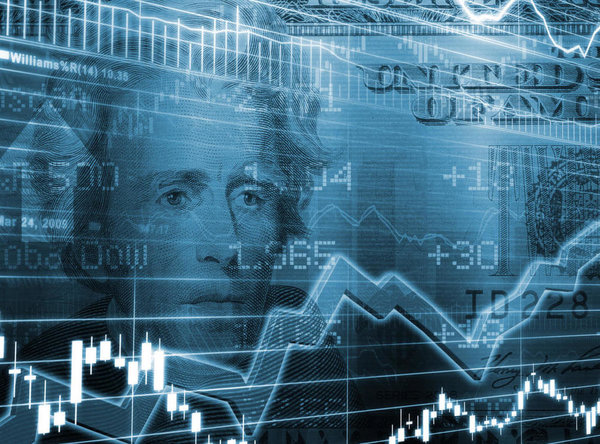The Forex market is usually termed the largest financial market in the world due to the amount of volume traded. The latest findings by the Bank for International Statements found that there was an average of $5.1 trillion traded every day on the Forex market in 2016. The major players in this market are the big banks and multinational corporations, but now anyone can take part as long as they’ve got a broker to give them access.

$5
FCA, CySEC
$30
1:1000
2009
MT4, MT5,

100 USD
CySEC, ASIC, FSCA, FFAJ, FRSA, SSA
400:1
2006
MT4, MT5, WebTrader, custom

$10
CySEC
N/A
25:1
2014
Custom

250 EUR
FSA, Seychelles
N/A
1:200
Unknown
FXRoad web and mobile trader
To understand exactly what the brokers do, you have to imagine yourself making a trade. For example, you would like to change US dollars for euros, this means you’re looking to sell US dollars and buy euros. So, who’s buying your US dollars and selling you the euros? After all, you can’t sell if there isn’t a buyer and you can’t buy unless there is a seller.
This is where the broker comes in. Because the Forex market is so huge, there will always be buyers and sellers in the market. Your broker connects you to these people so that you can get what you want. Your broker can match your trades to other traders connected to them, but often times, your trades are transferred to the interbank market.
In case you’re wondering why you need a broker to connect you to the interbank market, that’s because of the capital requirements. Most retail traders will have several thousands or hundreds in their accounts with which they would like to trade. On the other hand, the interbank market involves millions and sometimes billions worth of transactions, way more than any individual trader may have.
It is this disparity that kept the Forex market inaccessible to individuals in the past, because you would have needed a lot of money. The top Forex brokers changed this by introducing the concept of leverage. Leverage allows you to control a much larger amount of money that you actually have in your account, thereby allowing you to make bigger trades. In essence, the top FX broker provides you with enough capital so that you can participate in the interbank market.
Now you see that the best Forex brokers are the bedrock of the retail Forex market, because without them many of us would not be able to take part. The widespread use of the internet has also helped to make the Forex market more accessible, because now you don’t need to be within the broker’s location to make use of their services. As a result, many Forex brokers have added to the top Forex brokers list, all offering similar services, and this has brought a new challenge – how to choose the best Forex broker?

If you’re feeling confused and overwhelmed by the long best Forex brokers list available, it’s completely understandable. A simple Google search of the words ‘Forex broker’ will return thousands of results, leaving many people paralyzed. In any other case, for example, you were searching for a recipe, the top result would probably be the best, but this isn’t the case when it comes to Forex brokers.
Just because a certain broker has so many clients doesn’t necessarily make them the best for you. When choosing a Forex broker, there’s so much more to check before you make the final decision because there will be some subtle but crucial differences.
Forex brokers are supposed to be regulated by the financial regulator in the region from where they operate. Some examples of Forex regulators by region include:
The financial regulator ensures that the broker maintains integrity in their operations so that their clients’ funds remain secure. They also keep the brokers in check to prevent them from performing any activities that compromise their clients. This is why you will sometimes hear about a broker getting fined for certain activities.
Despite being required to acquire regulation, there are still some Forex brokers who operate without regulation. Often, they will leave out the regulation part from their ‘About Us’ webpage, but others will just declare that they are regulated even when they are not. To confirm whether the broker is regulated, get the license code from their website and run it against the regulator’s website. You should always avoid any brokers that aren’t regulated.
By this, we’re referring to the terms offered by the broker. These include:
Besides the brokerage services, Forex brokers have had to provide other services in order to set themselves apart. Some brokers will provide training through webinars which help novice traders learn the basics of Forex trading. Such services will be made available to active clients of the broker and can be a huge bonus for anyone that is still not knowledgeable about the Forex market. There will also be trading signals and PAMM accounts available, which can be used to help in your trading even though you don’t do the trading yourself.
Some brokers will even provide an account manager whose role would be to give you trading tips. This service can be very helpful even to the most seasoned traders because you get new ideas that you can act on.
Basically, every broker will try to provide more than just the brokerage services, and you should choose the broker that offers you what you need depending on your level of expertise.
If you’re expecting the name of the best broker, you’re out of luck. We can’t tell which is the best broker because there isn’t a single broker that is definitively ‘the best’. Choosing a Forex broker is a lot like selecting a shoe from the store, some people will say one is the best while others will say another one is. When choosing a Forex broker, a lot of factors should be considered, and the best broker for you will depend on:
Higher leverage is riskier although it can allow you to make much bigger profits, which means that everyone should choose the broker with the ratio of leverage best suited to their risk appetite. If you prefer to take risks, then the broker with the largest leverage ratio would be your best option and vice versa.
Every broker will also set the minimum deposit they allow before opening your account for live trading. This choice will depend on the amount of money you have for trading. When you’re not willing to place too much money in your account, then the broker allowing a favourable minimum deposit would be your best option.
Both the spreads and the commissions systems have their pros and cons, and you might prefer one or the other. Commissions have the advantage of remaining consistent through all market conditions whereas spreads may become very high when the markets are volatile. On the other hand, spreads can remain low most of the time since volatility only spikes for a few hours every day, leaving the charges low most of the time compared to commissions which will always be fixed.
The choice between either of the two systems will depend on when you trade. If you like trading volatile trading conditions, then commissions may be a better option. Those who avoid such situations can choose a broker charging spreads because they will always enjoy the lowest spreads when there is no volatility. Checking Forex brokers reviews is also a good way of weeding out the bad brokers.
Despite all this, searching for the best FX trading brokerage is still difficult, but these tips will help you avoid the top Forex broker.
Get the most recent news at your inbox
Stay up to date with the financial markets everywhere you go. We won’t spam you.
